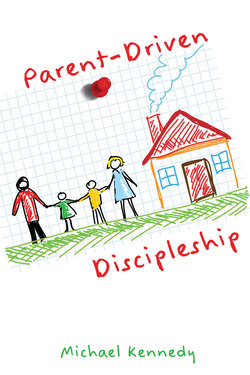Читать книгу Parent-Driven Discipleship - Michael F Kennedy Jr. - Страница 6
На сайте Литреса книга снята с продажи.
ОглавлениеForeword
The deterioration of the traditional family has been well documented and the evidence of its demise casts an ominous shadow on our churches and communities. The erosion of the nuclear family is not only chronicled in research journals but is also obvious through shifting cultural norms that are establishing a new “modern family.” But even contemporary attempts to redefine the family provide evidence of its foundational importance. Cultures and communities cannot be established apart from families, no matter how they are defined.
While we would like to throw stones from a safe distance at the culture’s attempt to distort the traditional family, the Church has become guilty of the same crime but with different weapons. Instead of murdering the sacred institution of marriage, we have, in many ways, abdicated our responsibilities as parents by spiritually abandoning our children. We have, in essence, converted the church into a spiritual orphanage where we enlist other people to spiritually raise our children.
While their growth must occur within true spiritual community, and there are occasions where the church is the only spiritual family some children have, the immediate family is God’s designed and intended nest for nurturing. Parents are entrusted with the primary and fundamental responsibility that cannot be relinquished to a spiritual surrogate – the discipleship of their children.
This enormous responsibility that parents bear is established on a multi-layered basis. Theologically, we can recognize it through the paternal love and discipline that our heavenly Father faithfully demonstrates towards us (Hebrews 12:5-11). Biblically, we can see it in the imperative instructions given to parents (Ephesians 6:1-2, Deuteronomy 6:4-9). Ministerially, Paul uses parents, the mother and the father, as the metaphorical models for loving service, guidance, and leadership (1 Thessalonians 2:7-8, 11-12).
Each of these layers reinforces the accountability we have before God for the spiritual development of our children. But acknowledging the responsibility does not guarantee the remedy. The issue is as much of a pragmatic one as it is a diagnostic one. Ultimately, parents may embrace their primary role in discipleship but not know “where to begin or how to proceed.”
This phrase exemplifies why Parent-Driven Discipleship is such a valuable resource. In this concise and insightful book Michael Kennedy offers a compelling case and useful guide for parents to take the spiritual reins of their family and disciple their children the way the Lord intended. It is thoroughly biblical and extremely practical. It is not only informative; it is instructional.
This descriptive phrase would also be an appropriate characterization of Michael and myself when we first met. I was a student pastor with a young family and he was a recently married seminary student who was eager to make a difference. Somehow, through hours of personal and prayerful conversations, we formulated some plans, invested in students, and watched the Lord do some amazing things that we still marvel at today.
Now, over a decade later, God continues to burden our hearts and clarify our vision for how to reach this next generation. As parents ourselves, we now sense an even greater burden to see our own children walking in the truth. We have come to realize, and continue to learn, that ultimately the responsibility for our children’s spiritual growth must begin with us.
This book is a result of Michael’s deep conviction of this truth. His passion for young people and their families encouraged me in our early years serving together and it continues to inspire me today. I know it will do the same for you as you consume and digest Parent-Driven Discipleship.
In His grace,
R. Scott Pace, Ph.D.
Reverend A. E. and Dora Johnson Hughes
Chair of Christian Ministry,
Oklahoma Baptist University
